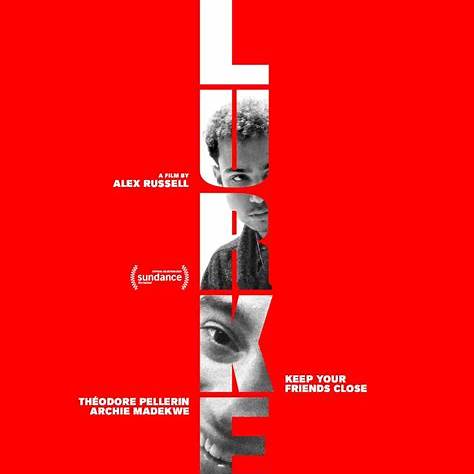Alex Russell’s Lurker, which drew attention at this year’s Sundance Film Festival, is the kind of unnerving psychological thriller that lingers long after the credits roll. Equal parts horror and character study, the film establishes Russell as a filmmaker unafraid of slow burns, and it dares audiences to sit uncomfortably in the shadows while it explores obsession, isolation, and the dangers of watching without being seen.
The premise is deceptively simple. A reclusive man named Daniel (played with unsettling precision by Will Poulter) lives in a nondescript apartment complex where the walls seem thinner than they should be. At first, his voyeuristic tendencies seem to fall into the familiar trope of the lonely outsider spying on neighbors. But Russell refuses to let the story play out predictably. Instead, Daniel’s lurking becomes the gateway to an exploration of guilt, paranoia, and blurred morality. His fixation on one particular tenant, an aspiring musician named Mia (Florence Pugh, raw and magnetic), unfolds in ways that oscillate between sympathy and dread.
Russell, who also wrote the screenplay, crafts dialogue that feels sparse but purposeful. Long stretches of silence dominate the film, and the tension comes not from cheap jump scares but from the anticipation of something dreadful breaking the quiet. The cinematography, drenched in muted grays and sickly yellows, mirrors Daniel’s psyche. Narrow hallways and cramped rooms create a sense of suffocating intimacy; the camera often frames characters from behind doorways or through mirrors, making viewers complicit in the act of lurking themselves.
What sets Lurker apart from standard genre fare is its willingness to engage with psychological complexity. Daniel is not painted as a one-note monster. His lurking is rooted in trauma, and the film carefully suggests the loneliness and fear that push him into the shadows. Poulter inhabits this with a performance that never resorts to caricature. His watchfulness, the twitch in his jaw, and the way his eyes dart between empathy and menace make him difficult to dismiss, even when the story edges toward horror.
Florence Pugh, as Mia, brings dimension to a character who could easily have been reduced to the object of someone’s gaze. She plays Mia with resilience and vulnerability, charting a journey from carefree ambition to an awareness that she is being watched. The confrontation between her and Daniel in the third act is one of the most riveting sequences of the film—suffused with tension, anger, and a tragic kind of recognition.
Russell’s direction is most impressive in his command of pacing. The first act unspools slowly, almost daring viewers to lose patience. But as small details begin to accumulate—strange noises, shadows at the edge of frames, hints of violence in Daniel’s past—the film grips tighter and does not let go. By the final act, what began as a character study has spiraled into a claustrophobic thriller, culminating in a climax that is shocking not for its gore but for its inevitability.
Thematically, Lurker questions the boundaries of observation and complicity. In an age where surveillance cameras, social media, and voyeuristic entertainment dominate daily life, the act of watching carries moral weight. Russell pushes audiences to consider when observation becomes intrusion, and when empathy for an outsider crosses into the danger of excusing their behavior. The film lingers because it refuses to give easy answers—Daniel is both a victim of his circumstances and a perpetrator of harm.
Not every element of the film lands perfectly. The subplot involving Daniel’s estranged family feels underdeveloped, and at times the narrative relies a little too heavily on visual metaphors—mirrors, reflections, shadows—that can come across as heavy-handed. Still, these missteps are outweighed by the sheer confidence of Russell’s vision and the performances he elicits from his leads.
As a breakout at Sundance, Lurker arrives in theaters with the kind of hype that can be difficult to live up to. But Russell delivers a debut feature that justifies the attention. It’s not a horror film designed for cheap thrills, nor is it a straightforward drama. It exists in a liminal space—unnerving, thoughtful, and haunting.
By the time the credits roll, viewers are left with the uneasy realization that the line between observer and participant is thinner than we’d like to believe. Alex Russell has crafted a film that watches us as much as we watch it.




